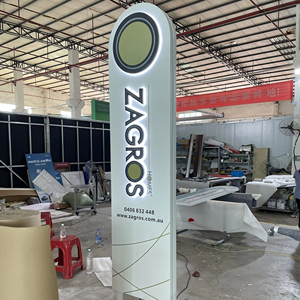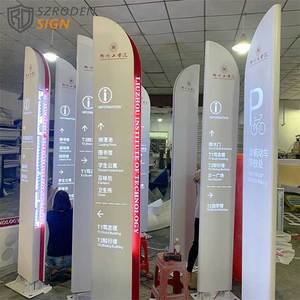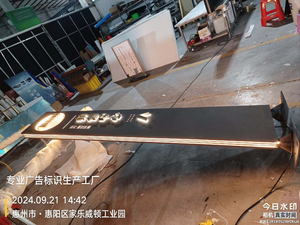
All categories
Featured selections
Trade Assurance
Buyer Central
Help Center
Get the app
Become a supplier

(1000 products available)









































Many electrical and electronic appliances are sold in elektro markets. These include:
Small appliances
These devices include things like coffee makers, microwaves, hair dryers, irons, blenders, and toasters. Because they are portable and easy to use, people rely on them daily. They are excellent resale products at the elektro market, as many customers prefer buying them from an easily accessible place rather than ordering them online.
Large appliances
Large appliances are also known as white goods and include refrigerators, freezers, washing machines, dryers, ovens, cooktops, and dishwashers. These are essential home additions that many customers will seek when looking for an efficient way to carry out domestic chores.
Electrical accessories
These include phone chargers, computer accessories, extension cords, and power strips. Many customers buy electrical accessories to ensure their devices can function in their homes. Because of the high demand for such products, vendors can make significant sales at the elektro market.
Consumer electronics
These include televisions, radios, projectors, and video equipment. Many people are interested in the latest models of consumer electronics as they provide entertainment and information. Because electronics can be quite expensive, many consumers prefer buying them from a trusted seller with a physical market.
Computers and accessories
Laptops, desktop computers, monitors, keyboards, and mice are some of the devices many customers seek when visiting an elektro market. With the current hype surrounding artificial intelligence, many people want to own computers to experience the benefits of the technology firsthand.
Lighting
Lighting fixtures such as decorative lights, spotlights, wall lights, and chandeliers are popular among buyers looking to improve their spaces. Vendors can make good sales of lighting fixtures at an elektro market, especially if the products are unique and well designed.
Smart home devices
These include smart locks, smart speakers, smart thermostats, and smart security cameras. Many customers buy smart home devices to monitor their homes and improve their living conditions.
Below are some of the application scenarios of the electric markets;
Retail Sales
Retail elelektro markets sell to individual consumers and businesses who buy directly from them. These customers seek small-scale purchases of electrical goods for their personal or business needs. Their primary focus is on products that cater to their immediate needs or consumption requirements. Hence, they tend to buy less than what a wholesaler or contractor would purchase.
Wholesale and Bulk Purchasing
Wholesale and bulk purchasing involves large quantities of electrical supplies for resale or use in large-scale projects. Contractors, resellers, and large businesses purchase from electrical markets to stock their inventories or equip their operations. These customers require competitive pricing, reliable supply chains, and a wide selection of products to meet their project specifications and resale needs.
Construction and Renovation Projects
Elektro markets provide the necessary materials for new buildings, additions, or remodels. Contractors and construction companies purchase materials for wiring, lighting, outlets, and other electrical components. These customers need a consistent supply of quality materials to complete projects on time and within budget.
Maintenance and Repair Services
Repair and maintenance services use electro market supplies to fix and maintain existing electrical systems. Electricians and repair technicians purchase replacement parts, circuit boards, and other components necessary to repair damaged or outdated electrical systems. These customers require quick access to quality materials to ensure efficient repairs and customer satisfaction.
Business and Commercial Applications
Commercial businesses use electrical market supplies for various business needs. Shops, restaurants, offices, and other businesses purchase lighting, signage, wiring, and other electrical components to equip their spaces. These customers need products that are durable, energy-efficient, and suitable for their specific business operations.
When choosing an electric market, consider the following factors:
Location
An electric market's location is crucial to its success. Select a site with heavy foot or vehicle traffic. Places near residential areas, busy streets, and public transportation hubs are ideal.
Size and Layout
Consider the size and layout of the store. A larger market with a well-organized layout is better for stocking various products. However, a smaller market can be manageable if the product range is focused.
Product Range
Look at the current product range in the electric market. Ensure there is a variety of products, including household appliances, consumer electronics, and industrial equipment. A diverse range will attract more customers.
Quality of Products
Prioritize the quality of products in the electric market. Inspect the condition of the products and their packaging. High-quality products sell faster and are more profitable.
Suppliers
Evaluate the suppliers' reputation and reliability. Good suppliers provide quality products at competitive prices. Establishing strong relationships with suppliers is key to the market's success.
Permits and Regulations
Familiarize yourself with the necessary permits and regulations for operating an electric market. Obtain all required licenses and ensure compliance with local laws.
Competition
Analyze the competition in the area. Determine the number of existing electric markets and their product range. Identify gaps in the market that your business can fill.
Staffing
Consider the staffing needs of the electric market. Hire qualified and knowledgeable staff to assist customers. Good customer service is essential for retaining customers and generating sales.
Marketing Strategy
Develop a marketing strategy to attract customers to the electric market. Utilize various marketing channels, including social media, flyers, and local advertisements.
The functions, features, and design of the Elektro market are delineated below:
Product Discovery
Buyers can search for specific products using keywords. They can also browse through various product categories to discover new products.
Bulk Purchasing
The Elektro Market enables businesses to purchase products in bulk, allowing them to place large orders and negotiate prices with suppliers.
Research and Comparison
Buyers can research different products, read reviews, and compare products from various suppliers before making a purchase decision.
User-Friendly Interface
The Elektro Market's interface is designed to be intuitive and easy to navigate, making it simple for users to find and purchase products.
Secure Payment Options
The market provides secure payment gateways, ensuring that buyers' financial information is protected during transactions.
Supplier Communication
Buyers can communicate directly with suppliers through messaging systems to ask questions, request customizations, and negotiate terms.
Order Tracking
The market provides order tracking features, allowing buyers to monitor the status of their orders and shipment in real-time.
Responsive Design
The Elektro Market is designed to be responsive, ensuring that the website is accessible and functional on various devices, including smartphones, tablets, and computers.
Product Detail Pages
Each product has a detailed page with high-quality images, specifications, pricing, and reviews, providing buyers with all the information they need to make informed purchasing decisions.
Account Management
The market allows users to create accounts where they can manage their orders, save favorite products, and access personalized recommendations.
Search and Filter Options
The search bar and filter options help users locate specific products quickly. They can filter products by brand, price, specifications, and other relevant criteria.
Q1: What are the common mistakes to avoid when shopping for appliances?
A1: Some common mistakes include ignoring energy efficiency, failing to measure space, neglecting brand research, overlooking customer reviews, and underestimating after-sale services.
Q2: How can buyers ensure they purchase energy-efficient appliances?
A2: Look for appliances with energy star certifications. Read the energy consumption labels and compare the energy efficiency of similar models.
Q3: Why is it important to measure the space where the appliance will be placed?
A3: If the appliance is oversized or it does not fit well in the intended space, it can lead to inconveniences. Accurate measurements ensure the appliance will fit perfectly.
Q4: What role do customer reviews play in the shopping process?
A4: Customer reviews provide insights into the appliance's performance, reliability, and user satisfaction. Reading reviews can help in making an informed decision.
Q5: What should buyers know about the warranty and after-sale services?
A5: Buyers should understand the warranty coverage, duration, and what it entails. After-sale services, such as installation and maintenance, are equally important.